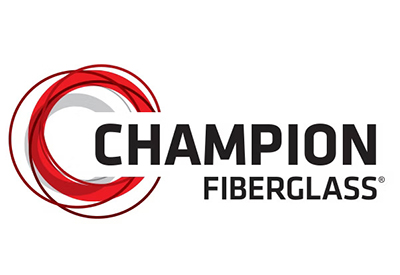Phenolic Electrical Conduit Promotes Safety in Toronto Transit Tunnels

May 12, 2022
Hazardous, fire-prone areas and electrical currents don’t mix. In construction site design and development, thoughtful consideration must be given to protect cables and, ultimately, stakeholders in the event of a fire emergency.
One such environment that requires fire safety considerations is transit tunnel applications. For these areas, coding standards groups recommend electrical conduit that meets requirements such as 2-hour safety ratings.
Many project managers, including those working on the Toronto Transit tunnel, have found success using fiberglass phenolic conduit in hazardous situations, as it is a safe option in extreme conditions. For this railway tunnel, project owners sought to replace aging conduit infrastructure, such as galvanized rigid steel conduit within the tunnel as well as provide the latest in safety enhancements for new tunnels.
For areas like tunnels and elevator shafts where fire is also concerning, this is where fiberglass phenolic conduit excels. It is two-hour fire-rated up to 1895℉ and is smokeless. Made with a phenolic resin base, it contains no toxins that release halogens, chlorine, and formaldehyde when burning.
Additionally, Champion Flame Shield® phenolic conduit:
- Meets NFPA 130, NFPA 502, ASTM E84, ASTM E136, ASTM E162, ASTM E662, and Flammability Classification UL94 VO
- Is UL 2515-A Listed for phenolic XW conduit
- Recently achieved UL 2196 FHIT 28E for RHH Dry Applications with our partner Radix Wire & Cable.
The Toronto Transit Commission (TTC) provides public transit services to approximately 1.7 million daily commuters. It operates bus, subway, streetcar, and paratransit services in Toronto, Peel Region, and York Region in Southern Ontario, Canada.
TTC was formed in 1921. It is the oldest and largest of the urban transit service providers in the Greater Toronto Area, with numerous connections to systems serving its surrounding municipalities.
CHALLENGE
Like other transit systems of the same vintage, TTC had some aging infrastructure in place. Previous galvanized electrical conduit created a safety concern in the event of an emergency situation like a fire, where the metals would create a brass alloy and render cables useless.
Additionally, the TTC was expanding. They had opened some new stations, so the organization wanted to take advantage of the latest innovations for safety.
SOLUTION
TTC project stakeholders researched the safest options in fire-proof electrical conduit. They discovered Champion Fiberglass® Flame Shield phenolic electrical conduit provided a superior level of safety required for the transit system. That is, in a transit fire situation, the Champion Fiberglass phenolic conduit provides a two-hour fire rating when used in conjunction with the fire-rated life safety circuit (fire sprinkler, ventilation & lighting) cables.
Further, the conduit meets the following safety standards and listings: NFPA 130 and NFPA 502, ASTM E136, UL 2196 tested and UL 2515-A Listed for Phenolic XW Conduit.
On top of the safety benefits, fiberglass phenolic conduit comes in at less weight than steel. Plus, labor takes less time per the NECA Manual of Labor Units.
As for installation, the TTC tunnels performed a jack and bore installation technique utilizing Champion Fiberglass epoxy conduit. The mechanical strength of Champion Fiberglass epoxy conduit allows it to be utilized for this type of specialized complex installation.
Another advantage that Champion Fiberglass conduit has over steel electrical conduit is that it provides some installation flexibility. Heavy steel conduit is very rigid. Champion Fiberglass phenolic and epoxy conduits offer enough flexibility to adapt to minor tunnel elevational and directional changes while still providing mechanical protection.
RESULTS
For the TTC, Champion Fiberglass Flame Shield phenolic offered a safe electrical conduit pipe solution in established and new tunnels for Toronto area commuters. With low smoke characteristics and a 2 hour temperature rating, Champion Fiberglass phenolic conduit helps insulate cables for reliable fire protection in tunnels. Finally, the conduit’s light weight yet strength aided jack and bore installation.





![Guide to the Canadian Electrical Code, Part 1[i], 26th Edition– A Road Map: Section 56](https://electricalindustry.ca/wp-content/uploads/2022/11/Guide-CE-Code-2-768x432.png)




![Guide to the Canadian Electrical Code, Part 1[i], 26th Edition– A Road Map: Section 56](https://electricalindustry.ca/wp-content/uploads/2022/11/Guide-CE-Code-2.png)



